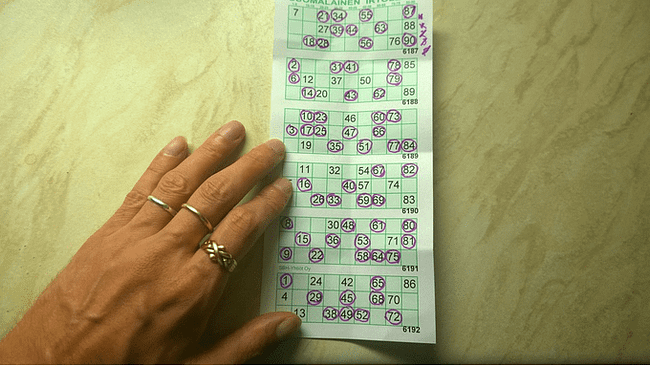
For many, playing the lottery is an exciting chance to dream big, envisioning the freedom that comes with hitting the jackpot. The allure of instant wealth can be irresistible, leading millions to purchase tickets regularly, even though the odds of winning are incredibly slim. Despite the game’s inherent randomness, several myths and misconceptions have persisted over the years, convincing people that they can “improve” their chances through specific strategies or beliefs. But is there any truth to these ideas? In this article, we’ll explore and debunk four popular lottery myths, giving you a clearer picture of what to expect when buying that next ticket.
Playing More Increases Your Chances of Winning
One of the most common misconceptions is that the more tickets you buy, the better your odds of winning, even with the help of a experts. While it’s true that each additional ticket slightly increases your chances, the overall odds remain overwhelmingly against you. For example, if the odds of winning a jackpot are 1 in 300 million, buying ten tickets only reduces the odds to 1 in 30 million—still incredibly slim. The financial investment required to increase your chances far meaningfully outweighs the potential reward, making this myth misleading.
Specific Numbers Are Luckier Than Others
Many players believe that specific numbers, like birthdays, anniversaries, or commonly drawn numbers, have a better chance of winning. However, every number in the lottery has an equal chance of being drawn, regardless of its frequency in past drawings. The lottery is random, and previous results do not influence future outcomes. Relying on “lucky” numbers doesn’t give you an advantage; it only leads to overconfidence and false hope.

You’re More Likely to Win if You Play the Same Numbers Consistently
Another widespread belief is that playing the same set of numbers over and over will eventually lead to a win. The rationale is that if you stick to your numbers, they will come up eventually. Unfortunately, this isn’t how probability works. Each lottery draw is independent, meaning the numbers drawn in one game do not affect future draws. Consistently playing the same numbers gives you no better chance than picking new numbers each time.
Only Certain Stores or Locations Sell Winning Tickets
Some players swear by buying lottery tickets from specific stores, believing that “lucky” locations are likelier to sell winning tickets. While it’s true that specific locations have sold big winners in the past, this has more to do with the volume of tickets sold than any inherent luck tied to the area. Stores that sell more tickets are statistically more likely to sell a winning ticket simply because they sell more overall, not because they’re luckier.
The lottery is a game of pure chance, and no strategy or beliefs can significantly alter your odds of winning. While myths like playing more tickets, picking lucky numbers, or sticking to a consistent set may give the illusion of control, the reality is that the odds remain stacked against every player. By understanding the true randomness of the game, you can enjoy the lottery for what it is—an exciting gamble but not a guaranteed path to wealth.











 Take advantage of free demos for slot games offered by many online casinos. These demos allow you to practice and become familiar with the game’s mechanics without risking any real money. Use this chance to develop strategies and grasp the game’s volatility.
Take advantage of free demos for slot games offered by many online casinos. These demos allow you to practice and become familiar with the game’s mechanics without risking any real money. Use this chance to develop strategies and grasp the game’s volatility.

 Blackjack is one of the most popular casino games in the world, and for a good reason. It’s a simple game to learn, but it offers opportunities for strategy and skill. Blackjack is worth checking out if you’re looking for a challenging and rewarding game. Many think that the best blackjack games can be found in online casinos. This is because you can find a greater variety of blackjack games online and higher stakes games.
Blackjack is one of the most popular casino games in the world, and for a good reason. It’s a simple game to learn, but it offers opportunities for strategy and skill. Blackjack is worth checking out if you’re looking for a challenging and rewarding game. Many think that the best blackjack games can be found in online casinos. This is because you can find a greater variety of blackjack games online and higher stakes games. Roulette is a classic casino game that’s easy to learn and fun. Just pick your number and hope for the best. But there’s more to it than that. Roulette offers many different betting options, so you can tailor the game to your own risk tolerance. If you are new to casino games, roulette is a great option. It is known that online roulette is one of the easiest casino games to understand. You will have a wide variety of bets you can make, and the odds are usually very fair.
Roulette is a classic casino game that’s easy to learn and fun. Just pick your number and hope for the best. But there’s more to it than that. Roulette offers many different betting options, so you can tailor the game to your own risk tolerance. If you are new to casino games, roulette is a great option. It is known that online roulette is one of the easiest casino games to understand. You will have a wide variety of bets you can make, and the odds are usually very fair.
 When you begin playing
When you begin playing  It is easy to get into gambling and forget to take note of the money you lose. When you keep track of losses and wins as you play casino games, it will help you recognize when on a downswing.
It is easy to get into gambling and forget to take note of the money you lose. When you keep track of losses and wins as you play casino games, it will help you recognize when on a downswing.



 Budgeting is essential before you start playing. You need to have a slight idea of how much you are willing to spend on the casino. When you know how much you are ready to pay, you will spend money with caution.
Budgeting is essential before you start playing. You need to have a slight idea of how much you are willing to spend on the casino. When you know how much you are ready to pay, you will spend money with caution.